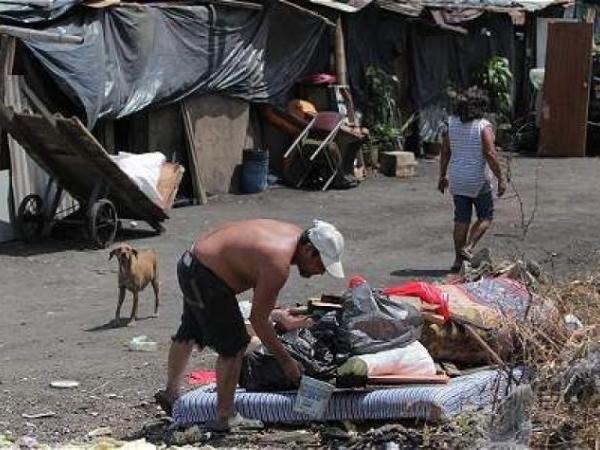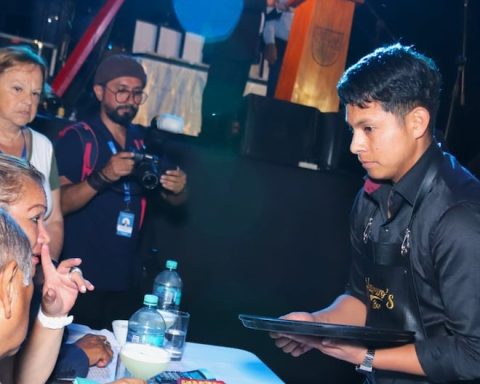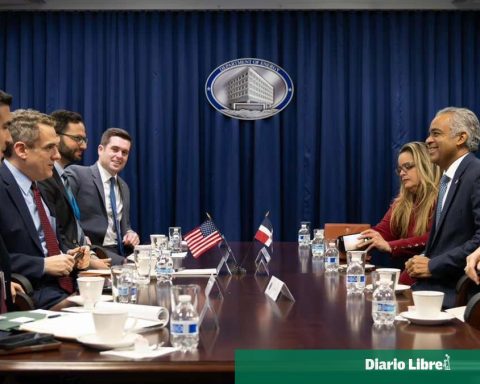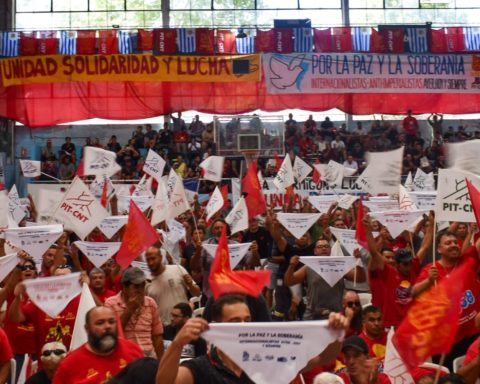The Supreme Court accepted the appeals filed by the plaintiff and, in a replacement judgment, sentenced 59 agents of the dissolved National Intelligence Directorate (DINA), for their responsibility in the crimes of qualified kidnapping of Francisco Aedo Carrasco, Juan Andrónicos Antequera, Jorge Andrónicos Antequera, Jaime Buzio Lorca, Mario Eduardo Calderón Tapia, Cecilia Castro Salvadores, Juan Carlos Rodríguez Araya, Rodolfo Espejo Gómez, Agustín Fiorasso Chau, Gregorio Gaete Farías, Mauricio Jorquera Encina, Isidro Pizarro Meniconi, Marcos Quiñones Lembach, Sergio Reyes Navarrete, Jilberto Urbina Chamorro and Ida Vera Almarza, victims of the so-called “Operation Colombo”.
In a unanimous ruling, the Second Chamber of the highest court – made up of the ministers Manuel Antonio Valderrama, Jorge Dahm, Leopoldo Llanos, the minister María Teresa Letelier and the minister Diego Simpértigue – sentenced the former agents César Manríquez Bravo, Pedro Octavio Espinoza Bravo, Raúl Eduardo Iturriaga Neumann and Miguel Krassnoff Martchenko to 15 years and one day in prison, as perpetrators of the crimes.
Meanwhile, Fernando Eduardo Lauriani Maturana, Gerardo Ernesto Godoy García, Manuel Carevic Cubillos, Rosa Humilde Ramos Hernández, Hermon Helec Alfaro Mundaca, Nelson Alberto Paz Bustamante, José Abel Aravena Ruiz, Claudio Enrique Pacheco Fernández, Nelson Aquiles Ortiz Vignolo, Rudeslindo Urrutia Jorquera , José Alfonso Ojeda Obando, Manuel Heriberto Avendaño González, Raúl Juan Rodríguez Ponte, Alejandro Francisco Astudillo Adonis, Daniel Alberto Galaz Orellana, Francisco Maximiliano Ferrer Lima, Leoncio Enrique Velásquez Guala, Teresa del Carmen Osorio Navarro, José Enrique Fuentes Torres, Julio José Hoyos Zegarra, Pedro René Alfaro Fernández, Hiro Álvarez Vega, Orlando Jesús Torrejón Gatica, José Manuel Sarmiento Sotelo, Luis René Torres Méndez, Rodolfo Valentino Concha Rodríguez, Enrique Tránsito Gutiérrez Rubilar, Hugo del Tránsito Hernández Valle, Manuel Rivas Díaz, Daniel Valentín Cancino Varas , Juan Duarte Gallegos, Victor Manuel Molina Astete, Fernando Enrique Guerra Guajardo, Leonidas Emiliano Méndez Moreno, Jorge Antonio Lepileo Barrios, Lautaro Díaz Espinoza, Pedro Ariel Aravena Aravena, Carlos Alfonso Sáez Sanhueza, Juan Carlos Villanueva Alvear, Alfredo Orlando Moya Tejeda, Rafael de Jesús Riveros Frost, Silvio Antonio Concha González, Luis Fernando Espinace Contreras, Hernán Patricio Valenzuela Salas, Luis Rigoberto Videla Inzunza, Palmira Isabel Almuna Guzmán, Sylvia Teresa Oyarce Pinto, Osvaldo Pulgar Gallardo, José Yévenes Vergara, Olegario Enrique González Moreno, Werner Enrique Zanghellini Martínez and Héctor Alfredo Flores Vergara must serve 10 years and one day of imprisonment. presiding, as authors.
In the case of agents Jaime Alfonso Fernández Garrido and Samuel Fuenzalida Devia, as authors, they were sentenced to 5 years and one day and 541 days in prison, respectively.
The ruling of the Criminal Chamber established an error of law in the contested sentence, issued by the Court of Appeals of Santiago, by acquitting several convicts who served in different barracks of the repressive body for what the detained victims suffered and who were later made disappear.
“That, in effect, the sentencers forget, that the crime of kidnapping punishes the one who without right locks up or detains another depriving him of his freedom, thus preventing him from exercising his power to move from one place to another freely. Criminal conduct consists of ‘locking up’ and ‘detaining’, in both cases against the will of the subject affected. ‘The’ detention ‘consists of the apprehension of a person, forcing them to be in a place against their will, depriving them of their freedom of movement, regardless of the means used to do so; and ‘enclosure’ refers to the action of keeping a person in a place where they cannot escape, despite the fact that this place has exits, that the person locked up does not know about, or that its use for it is dangerous or unenforceable’ (Politoff , Matus and Ramírez, Crimes against ambulatory freedom and individual security, page 201)”, the ruling maintains.
The resolution adds that: “Consequently, one cannot try to reduce the typical action to the mere fact of stopping or making it disappear, without ignoring the typical description contained in article 141 of the Penal Code. It should be remembered that the second paragraph of the aforementioned rule, in force at the time the crime began, provided that “The person who provides a place for the execution of the crime will incur the same penalty.” Holding the opposite deconfigures the crime of kidnapping, reducing it only to the act of apprehending the victim.”
“That on the other hand, as has already been outlined, in addition to said legal qualification, the judges estimated, according to recital 20) above, that the facts were committed in a context of systematic or generalized attack against the civilian population, which determined that the illegal acts established were also considered as crimes against humanity, for violating jus cogens norms of International Humanitarian Law, and therefore, subject to said international legal statute”, he adds.
“Regarding the characteristics of these crimes, the doctrine has indicated that the active subject includes both state officials (regardless of their hierarchy or position), as well as members of an organization; they can be committed in time of war or peace; it is not necessary for there to be an express order from the political authority to perpetrate it. The passive subject is the civilian population, against whom the attack is directed”, he relieves.
Likewise, the ruling establishes that: “(…) the subjects that were part of this organized apparatus of power are responsible for the unlawful actions that it carried out, although some, according to their functional intervention in carrying out the act and in accordance with the normative hypotheses of authorship and participation provided for in the national legal system, they will be authors, accomplices or concealers”.
In support of such assertion, the Criminal Chamber cited national and international authors and experts in the field.
For the highest court: “The co-authors intervene by executing a functional contribution to the joint or collective realization of the plan as a whole, for which the principle of reciprocal imputation will be applicable to them, according to which, everything that each of the co-authors does within the framework of the agreement of wills, it is attributable to the others”.
Likewise, the Criminal Chamber considered that, in the specific case, it is not appropriate to apply the half prescription figure to reduce the sentence, reiterating the criterion of the highest court, sustained in various sentences, of its inadmissibility as it goes against the principle of proportionality. of penalties for crimes against humanity.
Operation Colombo, or Case of the 119, was an operation mounted by DINA in 1975, intended to cover up the forced disappearance of 119 opponents of the military dictatorship of Augusto Pinochet. The objective of the operation was to make national and international public opinion believe —through the publication of false information in the media in Chile and abroad— that the disappeared had died in clashes with foreign security forces or had been victims of internal purges.
Colombo Operation Failure by The counter on Scribd


















